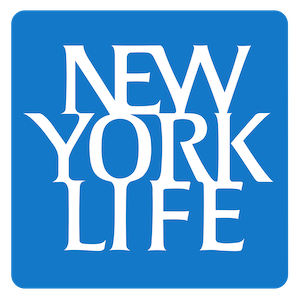Mutual Life Insurance Providers
noexam
Published on March 15, 2024
A mutual life insurance company is a company that is set up in such a way that the policyholders are also the owners. It is entirely different from a traditional life insurance company, which is either owned privately or by a group of shareholders who can buy and sell the company’s stocks on trading platforms.
Mutual insurance companies tend to be conservative in their approach to investments. Since their earnings and performance are not scrutinized every quarter, which is the case with publicly-traded insurance companies, they only focus on long-term financial goals.
They take fewer short-term risks and are in a much more stable position compared to stock insurance companies.
The biggest advantage of buying a policy from a mutual insurance company is that you can receive a share of the profits the company makes, as and when the company decides to pay dividends.
You can use the dividends to buy additional coverage on your policy, pay your premiums, repay the loans against the cash value (if there are any), or for any other purpose.
What Type of Policies Do Mutual Life Insurance Companies Offer?
Mutual insurance companies – just like traditional insurance companies – offer everything from term life policies to whole life, universal life, universal variable life, and simplified issue policies.
The one specific type of policy that they offer – which other insurance companies do not – is a participating whole life policy.
A participating whole life policy has a guaranteed death benefit and a cash value portion which earns interest as long as the policy stays in effect. Apart from this, it offers you an opportunity to earn dividends, which are usually paid out on an annual basis.
It should be noted that most mutual insurance companies do not offer guaranteed dividends. It depends on the profits a company makes every year and the surplus amount it has after settling claims and accounting for administrative expenses.
Some companies that offer guaranteed dividends. They pay dividends every year irrespective of their performance, market conditions, and expenses.
Participating life policies that pay guaranteed dividends, however, cost more than policies that pay dividends on an optional basis.
Direct Recognition vs. Non-Direct Recognition Insurance Contracts
The dividends you receive depends on the type of whole life insurance contract you sign with the company. There are two ways in which mutual insurance companies determine the dividends to be paid for each policyholder – direct recognition and non-direct recognition.
Under a direct recognition contract, the dividends you are paid depends on the amount of money in your cash value account. The more money you have in your cash value account, the higher your dividends will be. If you make a withdrawal from your account or sign up for a loan, the company will reduce your dividends.
Under a non-direct recognition contract, the dividends you are paid are not dependent on the amount of money in your cash value account. Irrespective of the money in your account, you will be paid the same dividends. So, you can make withdrawals or obtain a loan without worrying about the company reducing your dividends.

MassMutual
Financial Ratings
A.M. Best: A++
Moody’s: Aa2
S&P’s: AA+
Fitch: AA+
Policies Offered
- Term life (convertible into permanent after expiry)
- Direct term (online application process)
- Universal life (death benefit, cash value, flexible premium payments)
- Variable universal life (death benefit, flexible premiums, different investment options for cash value)
- Participating whole life (death benefit, cash value, optional dividends)
- Simplified issue whole life (no medical exam)
- Guaranteed issue whole life (guaranteed acceptance, no medical exam)

New York Life
Financial Ratings
A.M. Best: A++
Moody’s: Aaa
S&P’s: AA+
Fitch: AAA
Policies Offered
- Level premium term life (convertible into whole life)
- Yearly renewable term (convertible into whole life)
- Standard whole life (death benefit, cash value, and optional dividends)
- Custom whole life (flexible premium payments, death benefit, cash value, and optional dividends)
- Value whole life (affordable level premium, death benefit, and cash value)
- Universal Life (flexible premium payments, death benefit, and cash value)
- Variable Universal Life (death benefit, different investment options for cash value)

Guardian
Financial Ratings
A.M. Best: A++
Moody’s: Aa2
S&P’s: AA+
Fitch: AA+
Policies Offered
- Term life (level premium)
- Whole life (death benefit, cash value, and optional dividends)
- Universal life (death benefit, cash value, flexible premiums)
- Variable universal life (death benefit, multiple investment options for cash value)

Northwestern Mutual
Financial Ratings
A.M. Best: A++
Moody’s: Aaa
S&P’s: AA+
Fitch: AAA
Policies Offered
- Term life (choose between level premium and increasing premiums, convertible into permanent life)
- Whole life (death benefit, cash value, optional dividends)
- Custom universal life (flexible coverage and premium payment schedule, cash value)
- Single premium universal life (one-time premium payment, tax-free lump sum death benefit)
Factors to be Considered While Choosing a Mutual Life Insurance Company
Stability
How long has the company been in business? What are its financial ratings? These are two important questions you need to ask while looking for a mutual insurance company.
Policies Offered
Make sure the company you choose offers an adequate range of policies, add-ons, and riders that cover your financial needs.
Flexibility
The terms and conditions of the company you choose should be flexible enough to allow you to choose the coverage you require, adjust the premium payment schedule, buy additional coverage if needed, convert a term policy into a permanent policy, and so on.
Direct Recognition vs. Non-Direct Recognition
As mentioned above, a non-direct recognition company pays you the same amount of dividends as it pays other policyholders, irrespective of the money in your cash value account. New York Life, Ohio National, and Lafayette Life are some of the well-known non-direct recognition companies.
A direct recognition company, on the other hand, reduces dividends if you have an outstanding cash value loan or have made withdrawals. Guardian, Penn Mutual, Northwestern Mutual, and Ameritas are some of the well-known direct recognition companies.
Buying the Right Type of Insurance Policy
You should choose a mutual insurance company depending on your budget and financial goals. If you want to make full use of the living benefits, look for a company that offers a reasonably high rate of interest on the cash value account and pays dividends regularly.
If you do not care for living benefits and want to leave a large amount of money for your beneficiaries, choose a high coverage amount. Simply put, the policy you buy should be affordable (relative to your income level) and ideally suited for your financial needs.